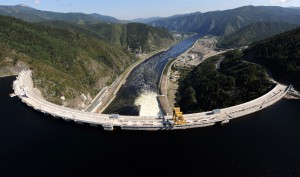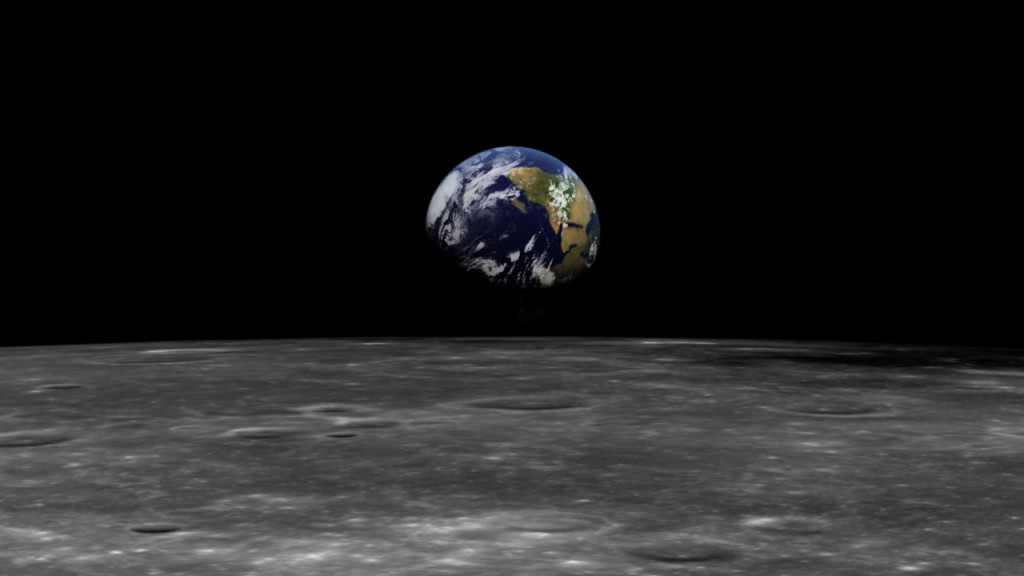The week that was, 9/6-12/2009
Posted on | September 13, 2009 | 2 Comments
Finding water on the moon would not only be a major scientific discovery, it would also have a profound effect on plans to establish a semipermanent moon base. Water would not only be useful for drinking, it could also be used to produce oxygen for respiration and to serve as a source of rocket fuel for a trip to Mars. — Los Angeles Times
“How can we get digital cable and Internet in our homes, but not clean water?” said Mrs. Hall-Massey, a senior accountant at one of West Virginia’s largest banks. — From the New York Times series Toxic Waters
The world wasn’t crying out for a periodical on bathing when Leonard Koren introduced Wet magazine in 1976. However, Koren had the imagination and audacity to create his own world, and that’s exactly what he did with Wet: The Magazine of Gourmet Bathing. — New York Times Magazine
Forty retirees from the Metropolitan Water District of Southern California earn pensions of more than $100,000 per year, according to a database provided by CalPERS, the California Public Employees Retirement System. — Orange County Register
The cholera epidemic of 1832 reached Exeter from Russia with the first cases reported in July. A young doctor, Thomas Shapter, charted its progress and became convinced its virulence was linked to sanitary conditions. His account was influential in the decision to move Exeter’s water supply and remove livestock from the city. Dr John Snow, drawing upon Shapter’s work, proved London’s 1854 outbreak was directly connected to a water pump. — From a look by the Exeter Express & Echo, UK, at the history of a local water treatment plant
Sea water from the Gulf is usually held back by fresh water flowing downstream from the Euphrates, which has maintained a delicate balance in the Shatt al-Arab waterway during previous droughts. But the scale of Iraq’s current water crisis is continuing to grow, with 2,000 residents of riverside villages reportedly abandoning their homes this week. — The Guardian
“We want water yesterday. But we also want clean water.” — Cypriot community leader following a meeting with the Agriculture Minister, Cyprus Mail
The Brunswick County Board of Commissioners took steps Tuesday to keep Brunswick’s water from tasting and smelling funky like it did in late July, early August … The musty taste that some residents likened to dirty laundry was a result of a chemical reaction at the Northwest Treatment Plant that occurred because of an algal bloom in the Cape Fear River. The county treats its water with chlorine dioxide, which, when killing algae, produces a chemical reaction. — Wilmington Star News
 “The power of water can be so surprising when it starts as a single drop.” — Reader comment after the Boston Globe published a photo essay (sample left) on the Sayano-Shushenskaya dam disaster
“The power of water can be so surprising when it starts as a single drop.” — Reader comment after the Boston Globe published a photo essay (sample left) on the Sayano-Shushenskaya dam disaster
On Sunday morning, without warning, North Korea unleashed columns of water from its Hwanggang Dam, 41 kilometers, or 26 miles, north of the border with South Korea. The resulting flood swept away six South Koreans who were camping or fishing downstream. Three bodies were found Monday. — International Herald Tribune
“All of this equipment is old, it’s falling apart, and it needs to be replaced and upgraded.” — Mark Young, executive director of the Lowell Regional Wastewater Utility on the city’s storm system and water treatment plants, Boston Globe
Homeowners could each be ordered to pay Lake County $23,000 for a new water supply system. If they are, they must come up with the money by Oct. 2 or have a lien placed on their house for 30 years and be forced to pay $147 per month or a total of about $53,000. — Chicago Tribune on a high-toned suburb with a sub-standard well system
The wastewater mainly comes from a drilling process called “fracking” — in which hydraulic fluid mixed with sand and chemical additives is pumped underground at high pressure to crack rock formations holding natural gas and oil reserves … the Marcellus Shale region in Pennsylvania … is estimated to hold enough natural gas to meet the country’s needs for more than a decade. — Pittsburgh Tribune-Review
Most of the Sheriff’s Office complaints are from people who suspect their springs and wells are running dry because they’re being tapped by neighboring marijuana gardens. — Santa Rosa Press Democrat
Your editorial “California’s Man-Made Drought” (Sept. 2) about the severe drought and water crisis in California argues that California’s water problems could be wished away if our nation were only willing to sacrifice an endangered three-inch fish, turn on a few pumps to move water from Northern California to the Central Valley, and wave a magic wand. The trouble is: The fish are a sliver of the problem, the pumps are already on, and pointed fingers can’t make it rain. –Letter to the Editor from Interior Secretary Ken Salazar, Wall Street Journal
The last minute water discussions going on right now in Sacramento reek of backroom deal-making. — Commentary by Conner Everts, San Gabriel Valley Tribune
“Everyone agrees that we are close and that we have made a decade’s worth of progress in just a few weeks.” — California Senate President Pro Tem Darrell Steinberg, Los Angeles Times
“Simply put, we’re living on borrowed time.” — 9/12 commentary by Timothy Brick and Jeff Kigtlinger, chairman and general manager respectively of the Metropolitan Water District of Southern California, San Gabriel Valley Tribune in support of the water bills that failed hours earlier in Sacramento
“You could roller-skate down the creek beds.” — David Johns, an Austin hydrologist on the effect of the Texas drought on the network of creeks, seeps and groundwater passages feeding the city’s Barton Springs, Houston Chronicle / AP
It could be labelled a storm of biblical proportions, but actually it is worse than that. In the Christian tale of Noah and his Ark, God punished the world with rain for 40 days and 40 nights. But Skye passed the 40-day mark on 24 August and continued until Wednesday this week – a total of 56 days of repeated rain. — The Independent on nearly two months of continuous rainfall in Scotland
Witnesses said waves of muddy water pulling along cars, trees and debris crashed into homes and buildings as people were getting up to break their fasting during the month of Ramadan. — The Irish Times on flash floods in Istanbul
Fresh water used to flow down the Jordan River to replenish the Dead Sea, thus keeping it constant throughout the millennia. However, in the 1960s, the water was diverted into the National Water Carrier for the populace to drink. These days, the only thing that flows into the Dead Sea is raw sewage and effluence from the fish ponds along the Jordan River. — Jerusalem Post
To boost conservation, Mexico City authorities have announced fines of up to $1,200 for hosing down cars and sidewalks or watering lawns during daytime hours. Subway signs warn riders that the city could run out of water next spring unless residents switch to low-flow showers and toilets and plug leaks. — Los Angeles Times
Comments
2 Responses to “The week that was, 9/6-12/2009”
Leave a Reply




September 15th, 2009 @ 9:55 pm
Thanks for this! I feel like the smartest kid in class just loaned me their notes!
September 16th, 2009 @ 9:41 am
Thank You for your blog and the information you choose to impart. I find as I read your blog and those of other very astute bloggers I wonder how the information provided can find voice and resonance with those not currently part of the choir…?
I wish I knew what the key is to tapping into one’s – awareness – causing them to begin to ask questions, if only of themselves and their own action.
Respectfully,